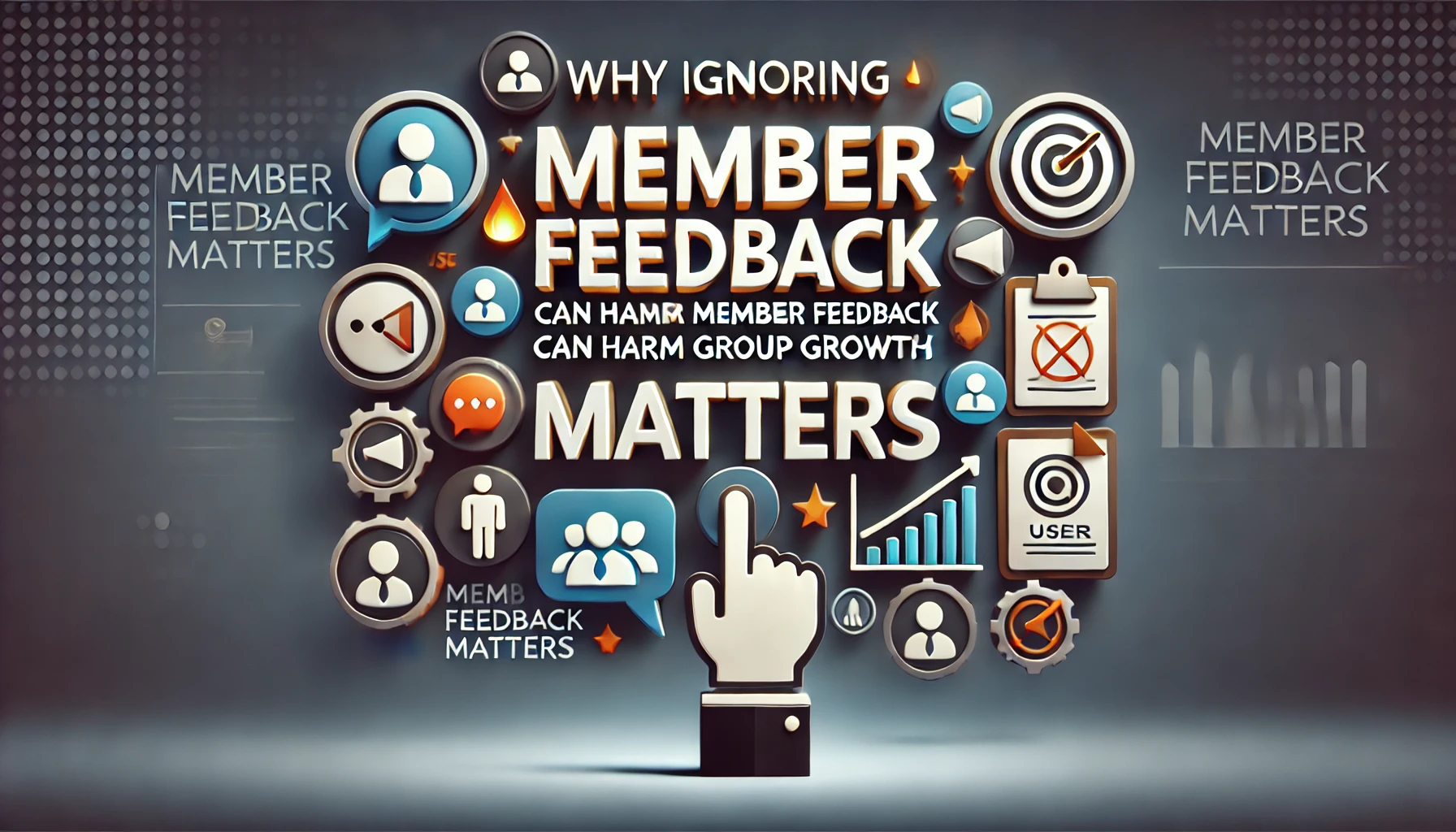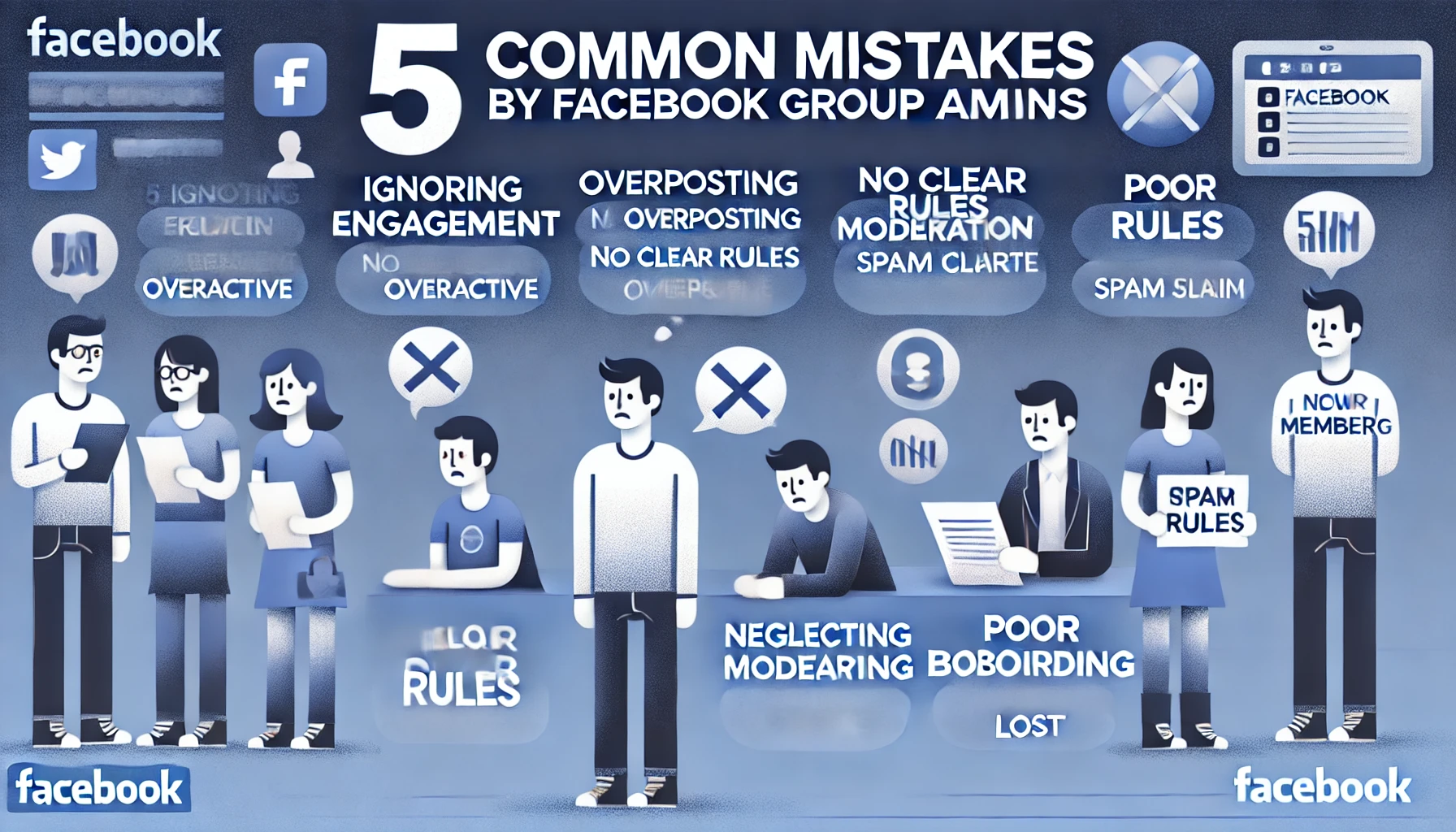Why Ignoring Member Feedback Can Harm Group Growth
Feedback is one of the most valuable pieces of information your Facebook group can receive. It provides insight into what your members want, what they value, and what keeps them engaged. Ignoring feedback not only limits growth but can also lead to disengagement and a decline in group activity.
The Importance of Member Feedback
At the heart of every thriving community is communication. Your members are the best judges of what’s working and what isn’t. When you actively listen to them, you gain invaluable insights that can shape the group’s direction, enhance the experience, and foster loyalty.
Ignoring their voices sends the message that their opinions don’t matter – and over time, this can lead to frustration and even members leaving the group.
Benefits of Asking for Feedback
- Boost Engagement: Members feel more invested when they know their feedback is being heard and implemented.
- Drive Content Ideas: Member feedback can inspire new post topics, challenges, and events that align with their interests.
- Increase Retention: By acting on feedback, you create a better experience that encourages members to stay and participate.
- Foster Trust and Loyalty: Transparency and responsiveness build a sense of community and belonging.
How to Collect Member Feedback
There are many ways to gather feedback from your group members. The more avenues you provide, the easier it becomes to gather honest, actionable input.
1. Create Polls and Surveys
Polls are quick and easy ways to gauge interest and gather opinions. Use them to ask about future content, group features, or even general satisfaction.
Example: “What type of content would you like to see more of in this group?”
2. Host Feedback Threads
Create dedicated posts or threads where members can share their thoughts. Pin these posts to ensure visibility.
Example: “Your feedback matters! Drop your ideas or suggestions for improving this group in the comments.”
3. Direct Messages and Anonymous Forms
For more sensitive feedback, allow members to message admins directly or submit feedback through anonymous Google Forms. This encourages honesty without fear of judgment.
4. Ask for Feedback After Events
If you host webinars, Q&As, or live events, ask for feedback immediately afterward to understand what worked well and what can be improved.
How to Implement Feedback Effectively
- Review Feedback Regularly: Set aside time each week to review member input and identify recurring themes.
- Act on Suggestions: Even small changes based on feedback show members you are listening and willing to improve.
- Showcase Changes: Highlight the changes you make by acknowledging the members who suggested them.
- Thank Members for Their Input: Gratitude fosters more interaction and encourages future feedback.
Signs You’re Ignoring Member Feedback
If your engagement levels are dropping, or members are leaving the group, it may be a sign that feedback is being overlooked. Other red flags include:
- Lack of interaction on posts and discussions.
- Repeating the same types of content with diminishing returns.
- Members privately reaching out to express dissatisfaction.
Final Thoughts
Ignoring member feedback is one of the quickest ways to stunt your group’s growth. When members feel valued and heard, they’re more likely to contribute, engage, and stay long-term. Ask for feedback often, act on it regularly, and watch as your group transforms into a thriving, interactive community.






